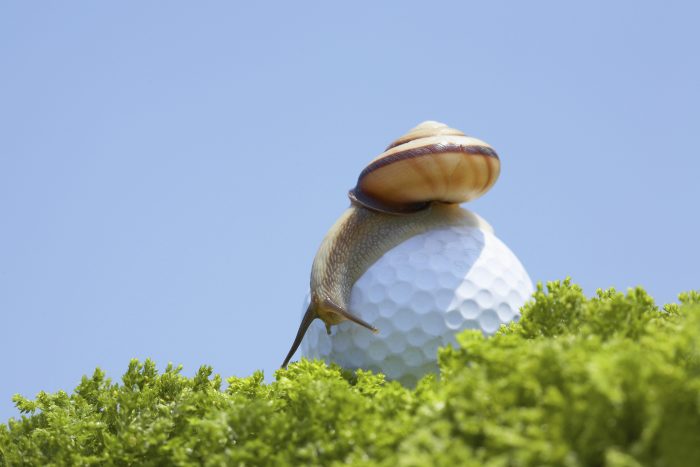In their own words: Keith Pelley
The chief executive of the European Tour talks about the measures the organisation is bringing in to combat slow play.
If you were to ask me what has been the most recurring theme in my time as chief executive of the European Tour, there would be a very simple answer: slow play.
It is a cause of frustration at every level of the game and in April it came to a head when one of our Tournament Committee members, Edoardo Molinari, shared a list of players on social media who had received bad times and fines this season.
While I didn’t necessarily agree with Edoardo’s chosen method of bringing this to a wider audience, he was entirely right to confront the problem and it prompted a detailed discussion at our next Tournament Committee meeting in May.

Keith Pelley
At that meeting we were mandated by our players to come up with a concrete action plan to tackle this issue once and for all, which we did for our next meeting in July. Our four-point plan – which focuses on regulation, education, innovation and field size reduction where appropriate – was given the green light at that meeting and, after a subsequent fine-tuning, we announced it to the world recently.
It is important to stress – as the above has illustrated – that our plan is not simply a knee-jerk reaction to recent media stories surrounding certain US players and their pace of play. This is a well thought out and comprehensive plan which we were asked to pull together by our players themselves.
It also, crucially, begins to differentiate between slow play and slow players. Hence, from the 2020 season onwards, there will be an immediate one-shot penalty for two bad times in a round on our Tour and increased fines for players consistently ‘on the clock’.
In addition to these regulation changes, and in a bid to foster meaningful mindset change amongst players, education will also be a key part of our proactive plan. All players will now be required to pass an interactive rules test as part of their condition of membership, while new members will be allocated a dedicated referee to educate them on pace of play policies at the start of their European Tour careers.

We will also continue to embrace technology, which has been at the forefront of so many initiatives we have launched in recent years. We did that via the trial of a new ‘Pace of Play’ timing system at the BMW PGA Championship at Wentworth in September, complete with digital timing boards on the tees.
Finally, in all of the discussions around pace of play, one thing we must remember is that one of the greatest challenges we face is the size of our arena. We play on what is the equivalent of 88 football fields and, in most weeks, with 156 players. The cost, infrastructure and accuracy required to time every player on every shot right now is prohibitive, but technology will change that.
I am convinced that within the next five years, every player will be timed on every shot and, by the time we reach that point, the discussion on slow play will no longer haunt our game.
To find out more about the European Tour, visit www.europeantour.com















One thing for sure.
No “marquee” player will be called – with shot penalties – for slow play. Until that happens, this PR inspired guff will have no effect.
Slow play has been addressed by governing bodies since the early 1900’s – not very successfully because penalties were just a theory. Maybe this will change if real penalties are applied.